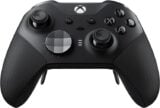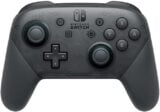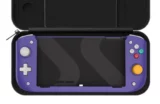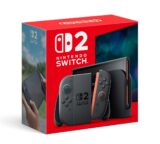Nintendo has blocked the Steam version of GameCube and Wii emulator Dolphin
But an emulation expert claims Dolphin has “messed this up” by including encryption keys

The team behind the upcoming Steam release of popular GameCube and Wii emulator Dolphin says it’s been blocked by Nintendo, and one emulation expert thinks Dolphin is at fault in this instance.
In a short statement on the Dolphin website, its creators wrote: “It is with much disappointment that we have to announce that the Dolphin on Steam release has been indefinitely postponed.
“We were notified by Valve that Nintendo has issued a cease and desist citing the DMCA against Dolphin’s Steam page, and have removed Dolphin from Steam until the matter is settled.
“We are currently investigating our options and will have a more in-depth response in the near future.”
It’s often argued that emulators are legal and it’s the use of ROM images of games (which contain copyrighted data) which is illegal. Using this argument, some claim that emulators can be entirely legal in some circumstances, such as the playing of homebrew games.
However, in the case of Dolphin, Twitter user @LuigiBlood has suggested that the emulator itself is at fault because it includes the Wii Common Key, a cryptographic key used by the Wii to decrypt games.
This has been backed up by developer and emulation expert Modern Vintage Gamer, who explains in a new video how the Dolphin emulator may not be legally protected, given that its inclusion of the Wii Common Key means the software actively circumvents anti-piracy measures.
@LuigiBlood quoted a part of Nintendo’s DMCA takedown which states: “The Dolphin emulator operates by incorporating these cryptographic keys without Nintendo’s authorisation and decrypting the ROMs at or immediately before runtime”.
The user also confirmed themselves that the statement was “objectively true”, adding: “I just checked, the Wii Common Key is in the emulator source code.”
Quoting the DMCA: “the Dolphin emulator operates by incorporating these cryptographic keys without Nintendo’s authorization and decrypting the ROMs at or immediately before runtime.”
…this is objectively true. I just checked, the Wii Common Key is in the emulator source code.
— Yakumono (@LuigiBlood) May 27, 2023
In his own video summing up the situation, Modern Vintage Gamer shows the Dolphin source code (blurred, to avoid getting a DMCA takedown himself), and points out the location of the Wii Common Key.
“You can see that these secret keys are very much basically hard-coded in the source code,” he notes.
“Now, this is something that Nintendo has obviously gone through and said ‘aha, these are ours, these belong to us, these are in our copyrighted BIOS files. These do not belong to you, and this is enough for us to now issue a DMCA takedown’.”
Modern Vintage Gamer also suggests that the creators of Dolphin may now have to figure out a way to get around the issue in other versions of the Dolphin software which are currently available, since they all use the same process and are therefore all vulnerable to potential action by Nintendo.
“To be completely with you guys, this is a big miss for Dolphin,” he explained. “They really need to get a handle of the situation and address this very quickly.
“I’m a little surprised that this only results in a removal or an indefinite takedown of Dolphin on Steam, and not the actual GitHub repository because, again, having stuff like this is a big no-no.”
Nintendo recently issued multiple DMCA takedown requests to GitHub to remove a homebrew tool designed to make it possible to play Switch games on an emulator.
Lockpick is a tool which lets players dump the unique encryption key from their own Switch so it can be used to play backups of Switch games on PC emulators.
While some players claim this is legal for creating their own backups – something Nintendo nevertheless disputes in its takedown claims – one of the steps in playing pirated Nintendo Switch games involves downloading someone else’s encryption key, a number of which are available for download online.

















